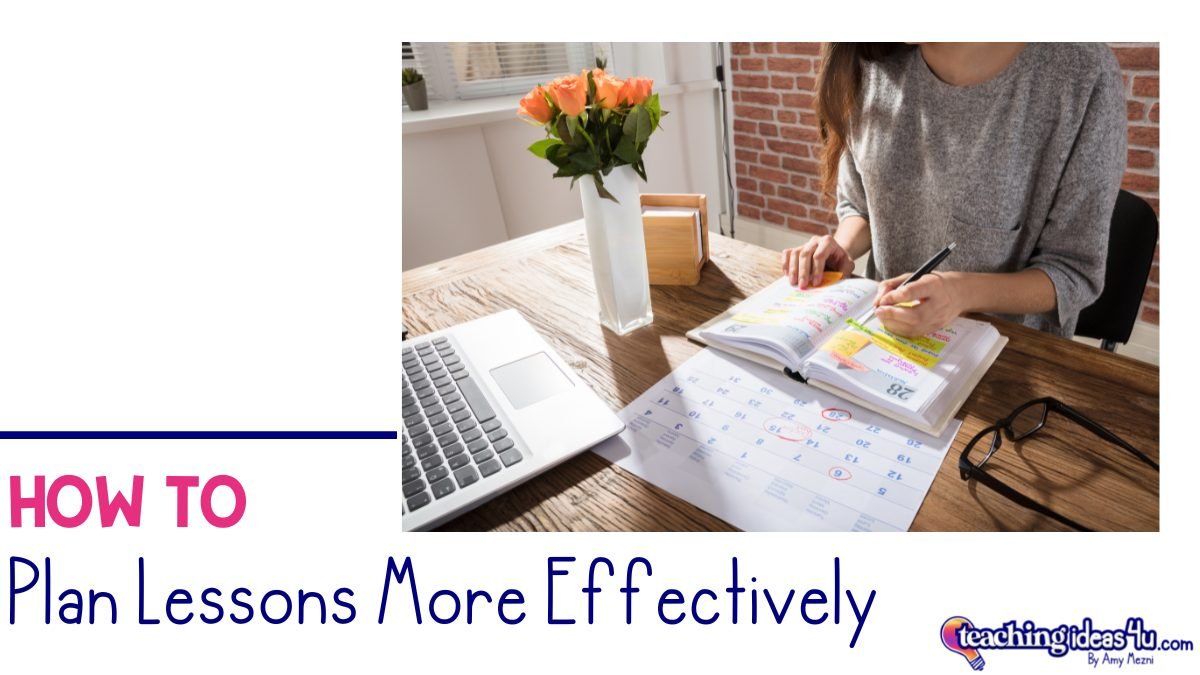How to Write Lesson Plans More Effectively
Take a moment and think about your lesson plans. Do you know what you are teaching next week? What about next month? Next quarter?
Are you beginning to sweat because you aren’t sure?
If your county is anything like mine, you receive very little planning time. Here, teachers start a week before the students, but that week is typically full of meetings and professional development - there is rarely time to organize your room, let alone sit down and do any bulk lesson planning.
You end up chasing your tail - you either end up trying to plan the next week by staying late or - even worse - struggle to plan for the next day every day.
How to Plan Lessons More Effectively
A lot of teachers in my schools planned for a week at a time, sometimes as a team, but rarely did they have time to consider any sort of long-range planning. If this situation sounds familiar, my advice would be to take time (sooner rather than later) and do a deep dive into your standards and get an idea of where you need to be by the end of each quarter.
Some counties provide a pacing guide, but that is not the same as having the time to analyze and plan units with teammates (or alone). If your county didn’t provide one, create a curriculum map of the skills and units you need to teach each quarter. This will lessen your stress level because you will have a better understanding of what you need to teach.
Identify Your Big Ideas
Every grade level or class has a few really important concepts, ideas, or standards that they need to master. Within a subject, some standards are the “meat and potatoes,” while others are the “side dishes.” It doesn’t mean that you don’t need the supporting standards, but that they should get less emphasis than the core standards.
For example, one reading standard may be to describe the connection between sentences or paragraphs in a text. That is important, but students must first be able to understand the text and determine the main ideas and details before they will be ready to work on the connections within the text.
You should determine what these core standards are for your class. For example, here in Florida, 3rd grade has a heavy focus on reading. 4th grade focuses on text-based writing for the very first time, and our 5th graders have a state science test. Those are big topics for each grade level, but within each of those subjects, some standards will need more emphasis than others.
Break Down Skills Into Smaller Bites
Once you’ve identified core skills, you should start thinking about how you can teach these skills in a series of mini-lessons. Having smaller, focused lessons makes the skills more manageable for both students and teachers alike.
Attempting to teach one broad concept at a time can be frustrating. A lot of your students could potentially get confused, and you can become overwhelmed with grading large essays or projects.
When I taught, with how tight class time was, it was always a challenge to teach multi-step skills at once - such as an entire science project or essay writing.
Instead of saying “your science fair project is due in 2 months” and going over all the steps at once, break the project down into steps and assign due dates for each piece.
Will splitting it up completely alleviate all problems? No. But it will help!
You can use this type of bite-sized lesson with any core skill you need to teach. A teacher friend of mine found great success in teaching evidence-based essays step by step. By using mini-lessons, her students were able to regularly review skills they learned while adding the next step in the process.
Why You Should Teach Skills in Bits
This type of long-range planning can benefit both you and your students in many ways.
Identifying key skills allows you to use your class time to focus on those concepts.
Long-range planning will prevent last-minute cramming before exams. This will help teachers and students feel more prepared.
Students will be able to master one smaller skill at a time, which keeps them from feeling overwhelmed.
Students find themselves consistently reviewing previously-mastered material.
You can catch student errors quickly because they are only working on one specific skill.
Grading is more manageable because you are only focusing on one skill at a time.
Have you identified key concepts for your classroom?

